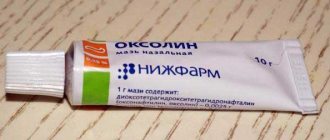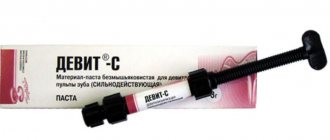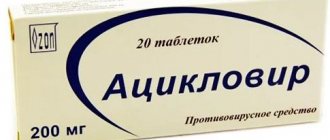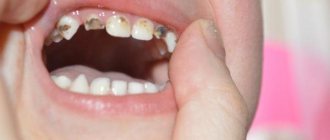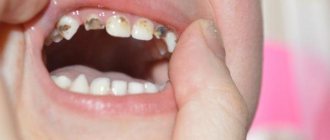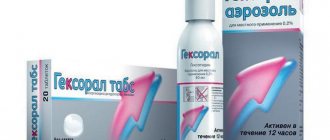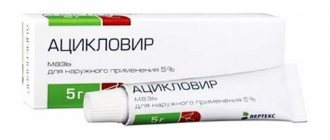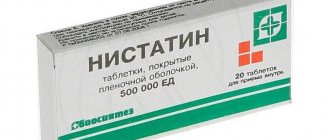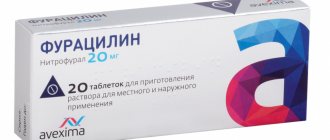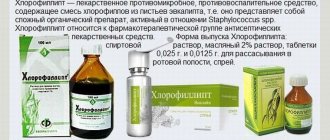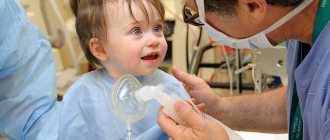We talk about a cold that has popped up on our lips and immediately remember Acyclovir. This is an immunomodulator belonging to the group of antiviral drugs used to treat herpes types 1 and 2, genital herpes and chickenpox. It contains no toxic elements, it acts selectively - only on the cells of the virus itself, suppressing their reproduction.
Acyclovir-Acri ointment
So, let's start with the fact that herpes does not only occur on the lip; viral diseases affect various parts of the human body. Therefore, Acyclovir is sold in the following forms, each of which has its own indications for use: cream and ointment for topical use 5%, tablets (200 mg, 400 mg, 500 mg), solution for intravenous injection Lyophilisate 250 mg, ophthalmic ointment 3%.
Indications for use
Acyclovir is indicated for the following diseases:
- infectious lesions of the skin and mucous membranes caused by the herpes simplex virus (primary and recurrent genital);
- chicken pox;
- shingles;
- herpetic lesions in children in the first month of life (including intrauterine infection);
- prevention of cytomegalovirus infection in patients who have undergone bone marrow transplantation;
- herpetic lesions of the cornea of the eyes (for eye ointment);
- Epstein-Barr virus infection.
Classification of the disease
Before starting treatment for herpes stomatitis, it is necessary to determine the form and degree of its progression. At the same time, acute herpetic stomatitis in children is diagnosed already when the virus first enters the body.
The severity of the disease is divided into:
- Light. Small blisters form on the oral mucosa - they quickly disappear after they rupture;
- Average. The rashes are more extensive, body temperature rises (up to 38º);
- Heavy. The patient has an abundance of ulcers in his mouth, and after they disappear, new ones appear. Symptoms are supplemented by fever, headache and chills, sometimes the patient feels sick and has diarrhea.
In the absence of proper treatment, chronic recurrent herpetic stomatitis develops. This form of the disease is already characterized by group rashes (on the inside of the cheeks, tongue and palate). The formations combine and form painful erosions. In the recurrent stage, except for rashes, no other symptoms of the disease are noted. The disease may return 2-6 months after treatment.
Doses and method of administration
Dosage of the drug Acyclovir
Dosage
The dosage depends on the disease and the severity of its course.
- Hepatic infection of the skin and mucous membranes involves prescribing 200 mg of medication to children and adults 5 times a day at an interval of 4 hours, interrupted by sleep (8 hours). Duration of therapy – 5 days.
- When preventing influenza or ARVI, Acyclovir is prescribed 4 times a day, 200 mg every 6 hours.
- As a complex therapy for severe immunodeficiency, the drug is taken at a dose of 400 mg 5 times a day.
- Chickenpox in children and adults whose body weight exceeds 40 kg requires taking the medicine 800 mg 5 times a day. Children over 2 years of age with a body weight below 40 kg take the drug at a rate of 20 mg per kilogram of weight 4 times a day for 5 days.
- Treatment of herpes zoster involves taking Acyclovir for children over 6 years of age and adults, 800 mg every 6 hours for 5 days. Children from 2 to 6 years old take the medicine 400 mg 4 times a day, and children under 2 years old receive it 4 times a day 200 mg.
How to use Acyclovir
The method of use of Acyclovir depends on the form of release. The tablets are swallowed without chewing, regardless of food intake, with plenty of water. Apply the ointment and cream using a cotton swab to the affected areas in a thin layer 5 times a day (every 4 hours plus a night break). The lyophilisate (intravenously) must first be diluted to the desired concentration. Eye ointment is applied in a 1 cm strip behind the lower eyelid 5 times a day after 4 hours.
Acyclovir ointment
Acyclovir ointment and cream are intended for external use, and application to the surface of the mucous membranes (nasal and oral cavities) is not recommended, but not contraindicated. It is necessary to remember some rules for applying medications to the mucous membrane and consult a doctor!
Herpetic rashes in the oral cavity are localized on the palate, inner sides of the cheeks and lips. As for the nasal cavity, herpes sores appear both in the vestibule of the nose - the thin skin inside the nose - and on the mucous membrane, which is located 1.5-2 cm from the edge of the nostril. If herpes appears on the lip or on the eve of the nose, then the application technique is the same as for the rest of the face and body - on cleansed skin 5 times a day, every 4 hours, with a break at night.
As for the mucous membranes of the mouth and nose, due to the fact that drool and mucus interfere with the penetration of the drug and, at the same time, contribute to the spreading of the ointment over the mucous membrane, which reduces the effectiveness of the drug, the most correct decision would be to switch to the tablet form of Acyclovir. Also, do not forget that the mucous membrane is a very thin tissue, which means that the development of allergic reactions is stronger and more pronounced.
Acyclovir cream
If the ointment still needs to be applied, then clean the oral or nasal cavities before using Acyclovir. It is advisable to rinse them with saline solution or other rinsing or rinsing agent, and then blot the surface with a gauze pad or cotton ball. Then apply a small amount of cream or ointment pointwise. There may be a burning sensation and pain. If they pass, then apply the remaining cream or ointment. If the pain intensifies, then this is an allergic reaction, and the use of the product must be stopped. Remember that the cream and ointment will enter the esophagus through the oral cavity; in small quantities this is not dangerous, but it is better to use another form of Acyclovir.
Acyclovir: price for 2022
The price of the drug acyclovir in 2022 has not increased compared to previous years, which is most likely due to high competition between manufacturers, as well as the appearance in pharmacies of a large number of more modern and effective analogues of acyclovir. The highest price is the original Acyclovir from GlaxoSmithKline (UK), sold under the Zovirax brand.
Ointment and cream Acyclovir 5% –
- Acyclovir-Acri ointment, 5 g – from 35 rubles,
- Acyclovir-Belupo cream, 5 g – from 70 rubles,
- Acyclovir-Sandoz cream, 5 g – from 150 rubles (2 g tube – from 75 rubles),
- Zovirax cream, 5 g – from 190 rub.
- Zovirax Duo-Active cream, 2 g – from 350 to 400 rubles.
Please note that all of the above products contain propylene glycol (to enhance the penetration of acyclovir into tissues). However, despite this, the ointment will in any case be inferior in effectiveness to the cream. The second point is that only Acyclovir-Sandoz cream and both Zovirax creams contain dimethicone, which will allow you to easily apply cosmetics over the absorbed cream.
Eye ointment Acyclovir 3% –
- Acyclovir-Sintez (Russia) – from 150 rubles,
- Acyclovir-Akos (Russia) – from 150 rubles,
- Zovirax 3% (UK) – from 240 rubles.
Acyclovir tablets: price
- Zovirax 200 mg (25 tablets) – from 250 rubles,
- Acyclovir Acri 200 mg (20 tablets) – from 70 rubles,
- Acyclovir Acri 400 mg (20 tablets) – from 220 rubles.
Can chickenpox be treated with Acyclovir?
Acyclovir can help fight chickenpox
In the instructions for use of Acyclovir, chicken pox (varicella zoster), or simply chickenpox, appears among the indications for use. Acyclovir actively fights it, but it all depends on the immunity of the individual person and the nature of the disease. For moderate and severe forms of chickenpox, Acyclovir is prescribed both in the form of tablets and as a cream or ointment. For adults, the drug is prescribed at an early stage of the disease, and for children under 12 years of age - only in case of intolerance to the painful condition or in severe cases of the disease. The dosage regimen is as follows: adults are recommended to take 1-2 tablets of 400 mg each. every 4 hours 3-5 times a day. The pediatric dose is half the adult dose, and the time interval between doses is increased by 1 hour, but not more than 4 times a day. Cream or ointment is applied pointwise to affected areas up to 5 times a day. If the mucous membranes of the eyes are affected by chickenpox, in this case an eye ointment is used, placed behind the lower eyelid up to 5 times a day. Acyclovir is used for 5 days, but the attending physician may make adjustments to the therapy.
Causes of stomatitis in a child
In childhood stomatitis, the mucous membrane of the oral cavity is affected: small pimples of white or yellowish color, filled with liquid, appear on its surface. In some cases, ulcers form.
Stomatitis is predominantly a childhood disease, although it can also occur in adults. The rash affects the inner surface of the cheeks, tongue and gums. The disease causes a lot of inconvenience: pimples hurt and itch, their appearance is accompanied by a burning sensation in the mouth.
Among the main reasons for the development of stomatitis are:
- poor oral hygiene;
- injury to the mucous membrane;
- diseases of the gastrointestinal tract;
- oral burn;
- pathogenic bacteria that enter the oral cavity from dirty hands, toys, etc.
Is it possible to use Acyclovir for a cold?
Acyclovir can be prescribed for ARVI
Acyclovir successfully fights herpes viruses, but sometimes a therapist prescribes Acyclovir for ARVI. Why? It is no secret that with ARVI and colds in general, the immune system is weakened, and this is fertile ground for the manifestation of herpes, which, against the background of the same ARVI, does not alleviate the situation. Although Acyclovir is ineffective in the fight against viruses that cause respiratory diseases, it is used as a prophylactic agent to prevent the development of herpes.
Acyclovir during pregnancy
A pregnant woman's immune system is weakened and may be susceptible to viral infections. Therefore, expectant mothers and those undergoing lactation are asking the question, “Is it possible to use Acyclovir during pregnancy?” According to the instructions, the use of acyclovir during pregnancy is permissible, but with caution. Moreover, this formulation means that use is possible, firstly, only as prescribed by a doctor, and secondly, only when the therapeutic effect is greater than the risk. This applies to all dosage forms. As for the lactation period, the drug passes into breast milk. Therefore, first consult a doctor, and then take the drug. In case of negative reactions, it is necessary to change therapy or stop breastfeeding for a while.
Interaction with other drugs and alcohol
Acyclovir and alcohol
When a doctor prescribes a particular drug, the question arises about compatibility not only with other drugs (more on this below), but also with alcohol. After all, a cold often appears at the wrong time, but plans are made to attend an event where there will be strong drinks. What to do in such a situation? Despite the absence of direct contraindications, alcohol and medicine are incompatible.
It is not recommended to take Acyclovir with alcohol
Firstly, alcohol, by suppressing the activity of leukocytes and the production of antibodies, reduces the body's defenses. Secondly, any drug puts a strain on the liver and kidneys, and alcohol has a similar effect. And when the liver cannot cope with processing, enzymes are released that suppress the action of Acyclovir. That is, the effect of the immunomodulator will be zero. Also, this can provoke intoxication of the body and increase the risk of side effects such as nausea and vomiting; convulsions, disturbances of consciousness; tremors and hallucinations; allergies (itching, skin rashes, urticaria, angioedema); loose stools; anemia; shortness of breath, pain in the sternum, increased heart rate; disorders of swallowing and respiratory functions; cephalalgia, dizziness, drowsiness.
If you suffer from a hangover after drinking, this is not the right time to take Acyclovir. When a hangover occurs, the body is already under stress. Taking the drug may cause a deterioration in your general condition.
Acyclovir and antibiotics
It may happen that Acyclovir is taken at the same time as antibiotics. When treating viral diseases, simultaneous use of antibiotics is not recommended, as they will simply interfere with each other. That is, treatment will be ineffective either from Acyclovir or from another drug. The one-time use of medications will not speed up the patient’s recovery, and the liver will not say “thank you” to you, since it creates an additional load, which can lead to negative consequences. In exceptional cases, as prescribed by a doctor, a one-time dose is possible, but it is associated with risks. Be sure to consult with your doctor.
Symptoms of herpetic sore throat
The disease begins acutely. From the moment of infection to the first symptoms, it takes from 2 to 14 days3. The temperature rises to 38-39°C. The patient feels weakness, headache, chills, less often nausea, possible vomiting and enlargement of the submandibular lymph nodes, 1,2,3.
Herpangina goes through several stages2:
- The day before the rash appears in the throat, the patient feels a mild pain. On examination, you may notice redness of the palatine arches and the back wall of the pharynx.
- Then, rashes appear on the mucous membrane of the soft palate, palatine arches, tonsils and uvula - small papules (nodules) up to 5 mm in diameter with a red rim.
- The nodules turn into vesicles, which open after 1-2 days.
- In their place, painful erosions with a gray-white coating form.
Up to contents
Analogs
Acyclovir analogs
Along with Acyclovir, patients with viral diseases are prescribed Remantadine. Is it possible to take Acyclovir and Remantadine at the same time? What's better? Remantadine prevents the proliferation of viral cells, strengthens the immune system, and is also used as a prophylactic during influenza epidemics.
Indications for taking Remantadine are:
- tick-borne viral encephalitis;
- flu;
- herpes type 1 and 2.
The drug can be used by children aged 7 years and older.
The main purpose of Acyclovir is the treatment of herpes, chickenpox and antiviral therapy. By integrating into the DNA structure of viruses, Acyclovir prevents them from multiplying and developing. If necessary, the medicine can be prescribed to children.
You should not take Rimantadine and Acyclovir at the same time, since both of these drugs are similar. Only the attending physician can accurately determine the required drug and calculate the dosage.
How is viral stomatitis treated?
Often, treatment of viral stomatitis is based on local exposure to damaged areas of the mucous membrane and skin. Ulcers and erosions are treated with an antiseptic and painkillers, the dentist prescribes applications (application of the drug) with anti-inflammatory and wound-healing compounds. To strengthen the immune system, the patient is prescribed medications based on echinacea and vitamins.
It is also important to follow a diet during therapy. All products consumed must be neutral in taste, pureed, and not hot.
You cannot self-medicate: without the help of a doctor, the disease can develop into a chronic form.
It is advisable to reduce home treatment of viral stomatitis in adults and children only to procedures that will speed up the healing process of lesions. The doctor will recommend rinsing with decoctions of herbs and oak bark.
Preventative treatment
The question often arises of how to prevent such an unpleasant situation as the manifestation of herpes. What should be the prevention? The recommendations are simple:
- Get vaccinated every three years to avoid infection or recurrence of the disease;
- Take acyclovir as a preventive measure when the disease may be triggered. Consult your doctor to determine your risk factors;
- Don't forget about hygiene;
- Strengthen your immune system: lead a healthy lifestyle, eat right and move more.
Acyclovir against herpes
Preventive measures to prevent stomatitis in children
To minimize the risk of developing stomatitis you need to:
- wash the child’s toys, bottles and other things regularly, and do not forget to thoroughly wash the baby’s hands;
- strengthen the child’s immunity;
- do not let your child bite his nails;
- create a balanced menu containing all the necessary minerals and vitamins. The diet should be followed;
- promptly treat diseases such as tonsillitis, gastritis and other gastrointestinal diseases. If you extinguish the outbreak in time, this will prevent stomatitis from developing;
- At least once a year, and preferably twice, visit the dentist for a detailed examination of the oral cavity.
All these simple recommendations will help avoid the occurrence of stomatitis, because any disease is much easier and cheaper to prevent than to treat it later. If it was not possible to avoid the disease, at the first signs of it, you must consult a doctor to prescribe effective treatment. If stomatitis appears again and again, a thorough immunological examination is required. The child should be examined by a pediatrician and an immunologist; it is also advisable to contact an endocrinologist and gastroenterologist (perhaps they will identify a chronic disease leading to relapse of the disease).
It is equally important to teach your child proper oral hygiene. If the teeth are affected by caries and covered with plaque, and there are fistulas on the gums, the fight against stomatitis will not be successful. A child must be taught how to properly brush his teeth and gums by buying him a brush and toothpaste appropriate for his age.
